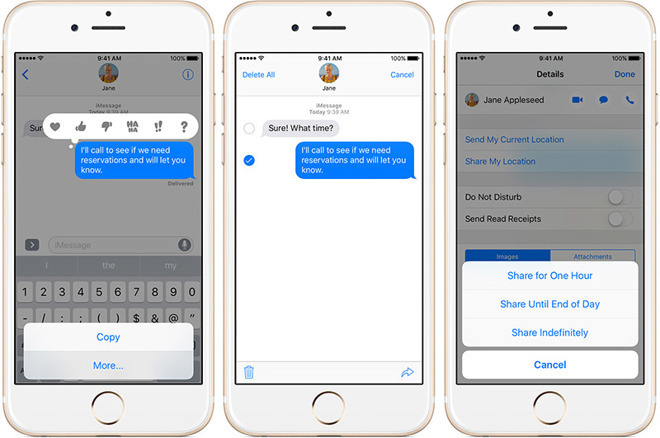Apple and a cadre of U.S. tech companies on Monday signed a letter condemning Australia's recent passage of a cybersecurity bill that bolsters law enforcement and government efforts to obtain access to encrypted messages.
The Reform Government Surveillance, which includes Apple, Dropbox, Evernote, Facebook, Google, LinkedIn, Microsoft, Oath, Snap and Twitter, is the latest tech consortium to voice opposition to Australia's "Assistance and Access Bill 2018," which flew through parliament last week.
According to a copy of the letter, seen by TechCrunch, the tech group called the bill "deeply flawed" and vowed to pressure Australia's government to "promptly address these flaws when it reconvenes."
"The new Australian law is deeply flawed, overly broad, and lacking in adequate independent oversight over the new authorities," the coalition said in a statement.
Like previous condemnations, many of which arrived after the bill's passage last Thursday, the Reform Government Surveillance claims the new mandate seeks to "undermine the cybersecurity, human rights, or the right to privacy of our users."
Pushed through on the last sitting day of parliament before summer break, the Assistance and Access Bill 2018 sets forth a number of guidelines for accessing secure communications in the wake of strengthening encryption standards. Australia is one of many countries seeking to strike a balance on encryption that provides both consumer protection and a clear path for national security operations.
At issue are requests for technical assistance that can, in some cases, compel private companies to decrypt customer communications. Of particular interest to tech firms are so-called technical capability notices, which critics argue grants law enforcement agencies and select government bodies the power to force the creation of backdoors into secure systems.
The requests and notices are served alongside a warrant, but typically come with a gag order. Further, failure to comply with a notice incurs a fine of A$10 million (about $7.2 million) for corporations.
Australia's government says it "has no interest in undermining systems that protect the fundamental security of communications," but tech firms like Apple argue the bill's language is too vague and could lead to abuse. For example, the bill says companies cannot be forced into implementing "systemic weaknesses" or "systemic vulnerabilities" as a result of a TAN, though said weaknesses and vulnerabilities are not narrowly defined.
A similar argument was proffered in a letter Apple submitted to the Australian Parliamentary Joint Committee on Intelligence and Security in October.
The federal Labor party attempted to modify the legislation last week, but failed to succeed and allowed the bill to pass. Labor leaders vowed amendments will be reviewed when parliament reconvenes.
 Mikey Campbell
Mikey Campbell







-m.jpg)






 Charles Martin
Charles Martin

 Malcolm Owen
Malcolm Owen
 William Gallagher
William Gallagher

 Christine McKee
Christine McKee
 Wesley Hilliard
Wesley Hilliard









15 Comments
I think Apple should suspend iPhone sales for a while. Australia isn’t the that big a market, and with recent price rises no doubt smaller than it used to be. Do it after Christmas, maybe after everyone is back to school.
An act like that would raise awareness of what the political class has been up to. And let’s be honest, it isn’t about terrorists. They would just add an encryption layer and carry on terror.
This bill was about finding out which of us don’t agree with our betters.
Theatre. Political theatre. The ALP were always going to line up with the rest of the uniparty to support this bill.
The idea of suspending sales in a market doesn't make any sense and would only harm Apple while helping Apple's competitors.
Also contrary to other posters (on here, but also on other similar posts) Apple is a significant player in the Australian market, and that market is a significant source of revenue for the company as also reflected by the relatively high number of retail stores in Australia.
Apple does however have significant ability to affect change in legislation, especially as it is a large tax payer in the country, which earns it a place to petition the government about such matters.
The bill is vague, definitely could lead to abuse of power and only passed parliament because the opposition was afraid that a terrorist incident over the Christmas holiday would be blamed on them for not supporting the bill and jeopardise their chances at the next election.
We don't solve terrorism with backdoors and cyber-snooping. We solve terrorism by addressing the fundamental social inequalities that give rise to it.
yet Google has no problem helping the Chinese government...